#The Death of Procris
Explore tagged Tumblr posts
Text
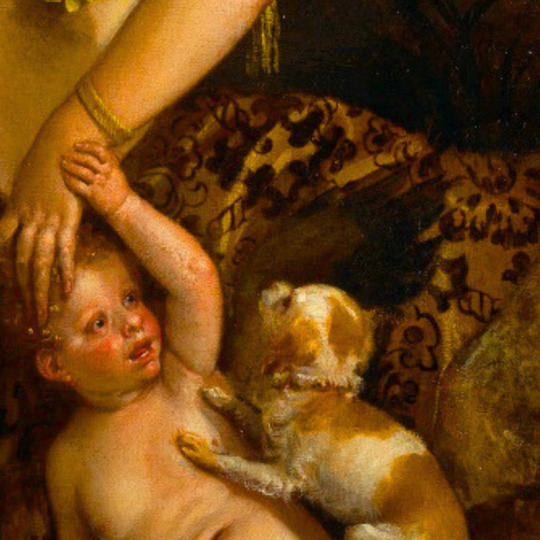

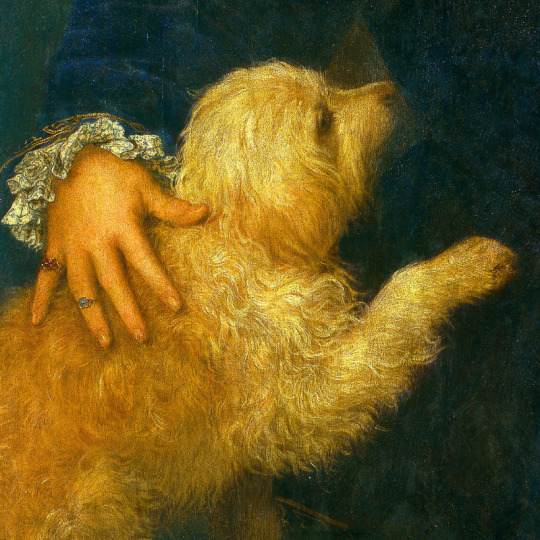
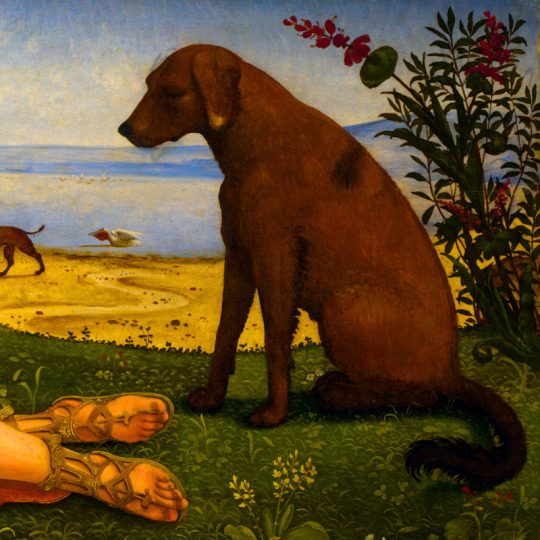
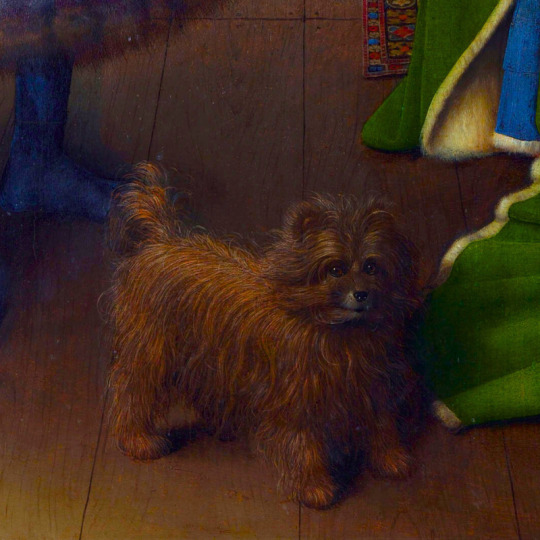

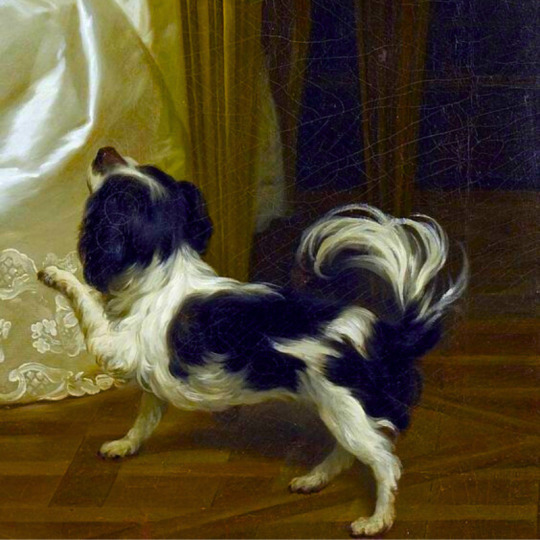
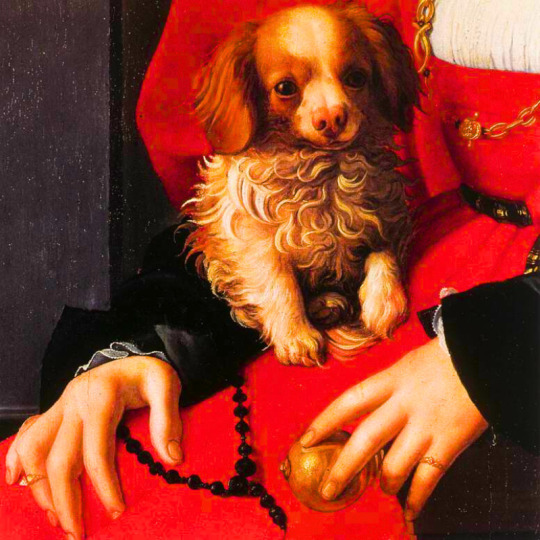
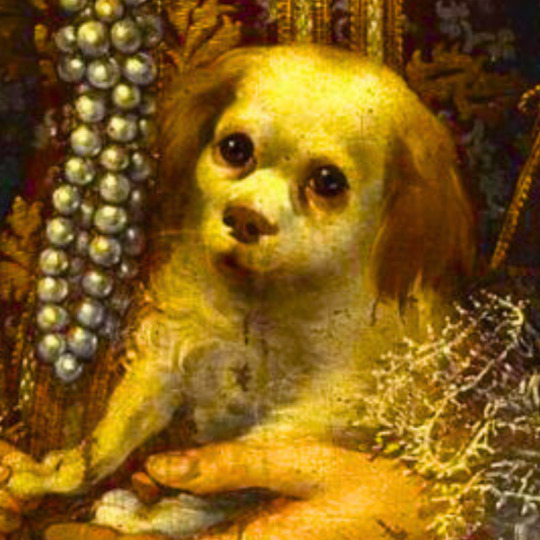


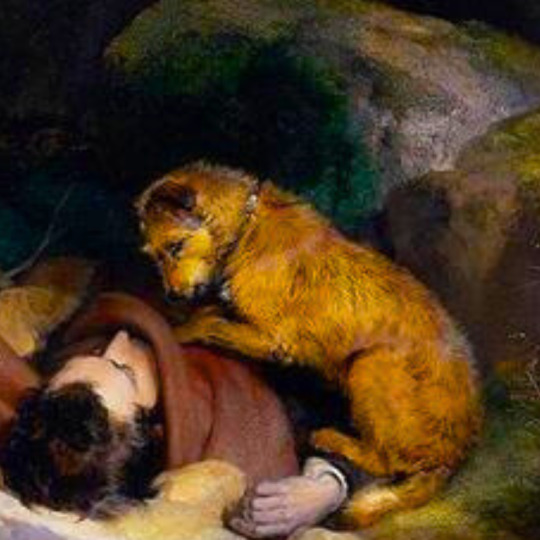
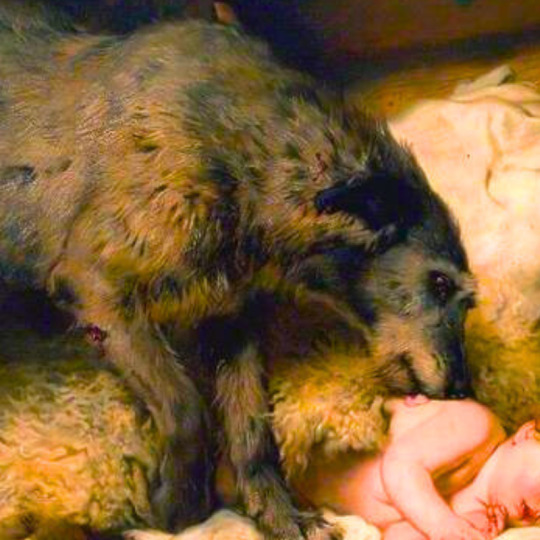





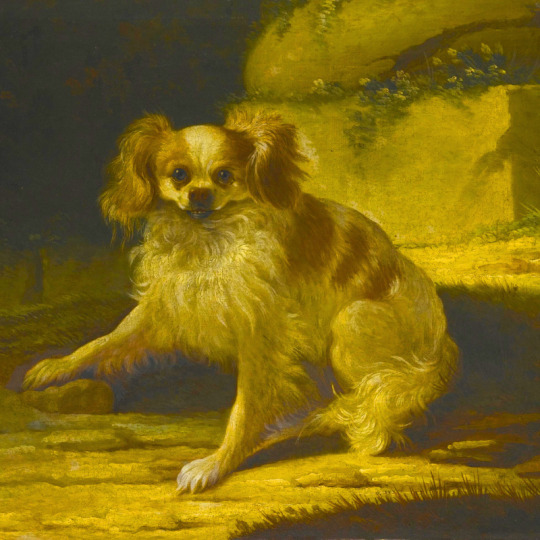

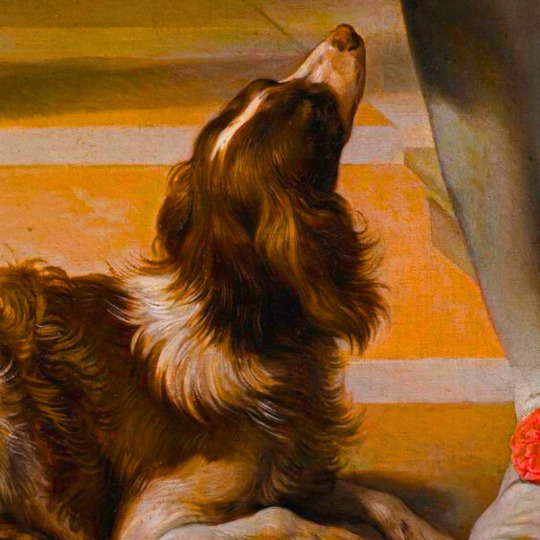
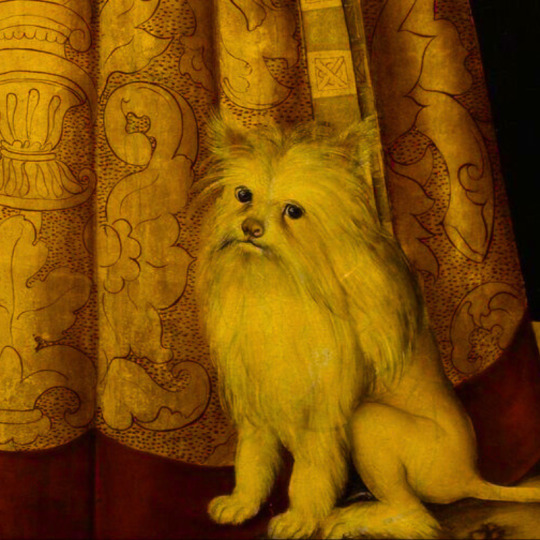

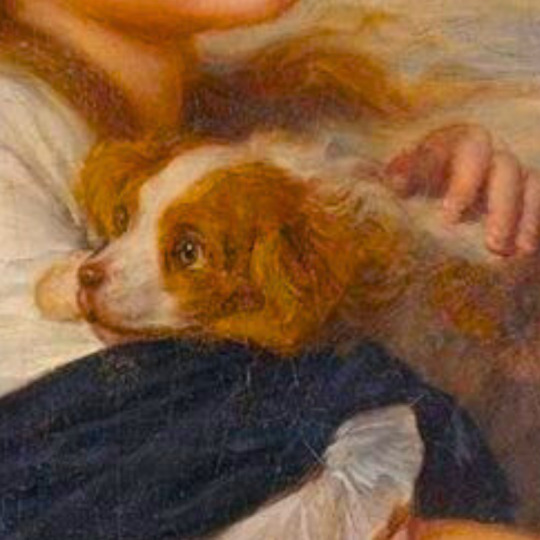

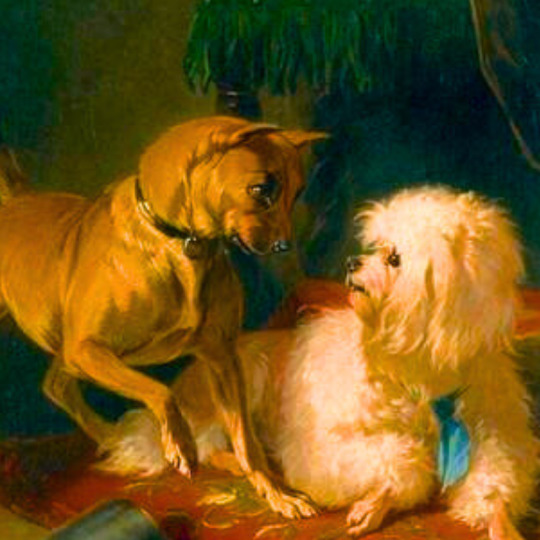
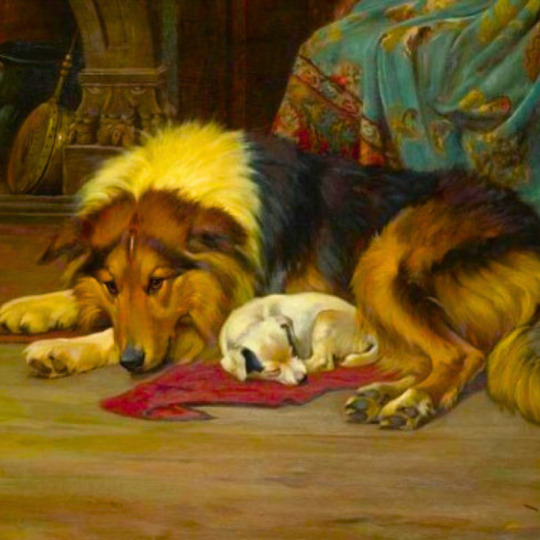
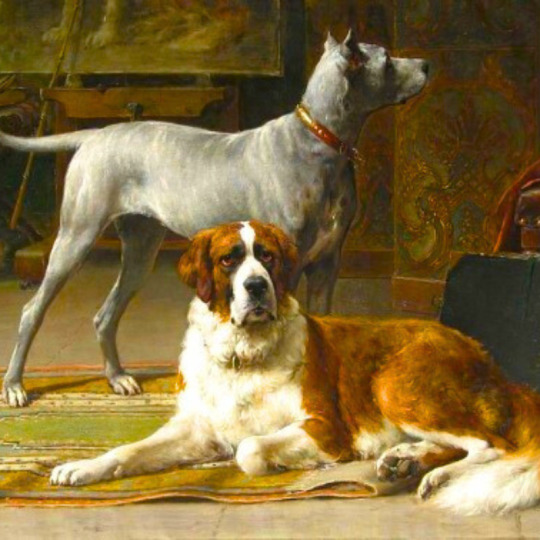
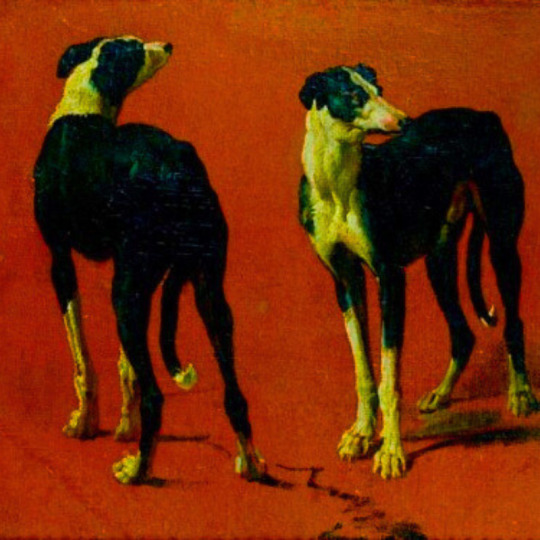

dogs + art
#mars and venus with cupid and a dog by paola veronese#venus of urbino by titian#portrait of federico ii gonzaga by titian#the death of procris by piero di cosimo#arnolfini portrait by jan van eyck#venus and adonis by titian#portrait of the countesse d'egmont pignatelli in spanish costume by alexander roslin#portrait of a lady in red by agnolo bronzino#maselli family portrait by lavinia fontana#children of the marquis de bethune playing with dog by francois hubert drouais#portrait of princess ekaterina dmitrievna golitsyna by louis-michel van loo#attachment by edwin landseer#gelert by charles b. barber#the poor dog the shepherd's grave by edwin landseer#requiescat by briton riviere#marie leszczinska#my lady's pets by arthur wardle#the great debate by george armfield#portrait of a brown and white toy spaniel in a landscape by jacques-charled oudry#darby in his basket kennel by anthony frederick sandys#portrait of john 3rd baron monson of burton by pompeo girolamo batoni#portrait of dutchess katharina von mecklenburg by lucas cranach the elder#young lady and her dog by james john hill#young girl with a spaniel by jean-baptise greuze#the masters chair by john henry dolph#interior with two dogs by conradijn cunaeus#no walk today by wright baker#painter's studio by otto erelman#study of greyhounds by alexandre-francois desportes#sitting pretty by horatio henry couldrey
193 notes
·
View notes
Photo

Henrietta Rae, The Death of Procris, 1889 oil on canvas
227 notes
·
View notes
Text





[ the death of procris, benjamin west. ]
— oil on canvas, 1770 (retouched in 1803).
the painting portrays procris dying upon being accidentally shot by her husband, cephalus, as he’d mistaken her for a wild animal during his hunt.
procris was a princess of athens, married to cephalus, and had a long history and much cause to believe her husband was unfaithful as he often left for hunting, especially when a servant told her of what they’d heard one time. the servant told her that they’d heard her husband call for either nephele, aura, or zephyr to come into his lap and relieve him of the heat. his words, though innocent enough -to ask for the mercy of wind after the strain of the hunt- were misinterpreted by the servant, and conveyed to the princess more romantically than they actually were.
hoping to catch her husband in his infidelity, she followed him into the forest one day, moving between the thickets. cephalus, unaware, thought the noise came from an animal lurking, and so he aimed at it, and surely enough struck it with the javelin that never missed, only to find moments later that it was his wife who he had struck.
even as she was dying, cephalus still comforted her that he was faithful, and explained what the servant had heard, and so she died peacefully in his arms.
the painting is now in the Art Institution of Chicago.
#oil painting#painting#artwork#art#raphaelite#oil on canvas#traditional art#raphaelite artists#paintings#artworks#art detail#art details#art stories#art blog
22 notes
·
View notes
Text


Paolo Veronese (Verona, 1528 - 1588)
Venus and Adonis, ca. 1580. Oil on canvas: 162 x 191 cm. Collection Museo del Prado
Venus is holding a Ventuolo, or Flag fan, a Renaissance rotating accessory.
The painting was enlarged by 50 cm in the upper border in the 18th c. This addition was removed in 1988. The pendant (pair) of this painting is Cephalus and Procris, also in Prado
Both stories involve love cut short by death, in this case the grief of Venus is depicted in a subtle, almost statuesque Hellenistic manner.
Velázquez acquired this canvas during his second trip to Italy (1649-1651)
https://en.wikipedia.org/wiki/Venus_and_Adonis_(Veronese,_Madrid)
https://www.museodelprado.es/en/the-collection/art-work/venus-and-adonis/692667da-d0f5-4765-ba03-30fdce3513d1?searchid=54e8efc7-2819-4f18-66c0-8f019178084a
#Paolo Veronese#renaissance#painting#mannerism#Venice#mythology#Venus#corpse#Adonis#large format#restoration#Ventuolo#masterpiece
9 notes
·
View notes
Text

Piero di Cosimo, A Satyr Mourning over a Nymph (The Death of Procris), ca. 1495, oil/panel (National Gallery, London)
2 notes
·
View notes
Text

The Death of Procris
Artist: Benjamin West (British-American, 1738 – 1820)
Genre: Mythological Painting
Date: 1770, Retouched 1803
Medium: Oil on Panel
Collection: Art Institute of Chicago, Chicago, IL
In Greek and Roman mythology, Procris is killed by her husband Cephalus in a tragic tale of jealousy and mistrust that ends their love.
The story
Procris is suspicious that Cephalus is visiting a lover instead of hunting, so she hides in the bushes to spy on him. When she rustles in the leaves, Cephalus mistakes her for game and shoots her with his magical spear. Procris dies in his arms, begging him not to let Aura take her place as his wife.
#mythological painting#roman mythology#greek mythology#mythological art#landscape#procris#benjamin west#18th century painting#cephalus#jealously#mistrust#trees#rocky formations#man#woman
1 note
·
View note
Photo

"The Death of Procris" by Benjamin West British, born in America, 1738-1820 Oil on panel England, 1770, retouched 1803
Benjamin West was the first American-born artist to gain an international reputation, and he was recognized as the "Father of American Art".
The Death of Procris, painted between 1770 and 1803, is one of Benjamin West's most significant works because it marks the transition between traditional European art and the new American style of painting.
The composition of the painting is unusual for its time, as it uses the Romantic concept of a "pastoral landscape" to tell a classical story.
The Death of Procris was created at a time when England was a great power and the Industrial Revolution had an enormous impact on the country.
The Death of Procris by Benjamin West is a large-scale painting that depicts the tragic death of Procris, a nymph who was killed by her husband, Cephalus. The painting is characterized by its harmonious composition, its use of warm colors, and its narrative details, which draw the viewer into the story. The scene is set in a pastoral landscape, with a clear sky and lush trees, while the figures of Procris and Cephalus are illuminated by the rising sun, symbolizing the dawn of a new era in English art. Overall, The Death of Procris is a beautiful and emotionally evocative work of art, that stands as a testament to Benjamin West's skill and influence, and to the vibrant artistic culture of England in the late 18th century.
Always at your service, AI Art Detective
This blog took 442 OpenAI tokens.
This image and it's meta-data are courtesy of The Art Institute of Chicago's public API, which you can visit here.
1 note
·
View note
Photo

The death of Procris by Henrietta Rae.
16 notes
·
View notes
Photo

Procris and Cephalus
(painting by Henrietta Rae, 1852-1928)
Procris and Cephalus is a myth about a relationship that has a lot of trust issues.
There are many versions of the story by different people, Pherecydes, multiple Ovid versions, Apollodorus and others. Procris is also in Boccaccio’s 14th century “De Mulieribus Claris” which was an early notable book that just had biographies of historical and mythical women.
Since there are SO MANY versions, all similar but not quite the same, I am going to tell two separate versions below the cut, one having the Pherecydes/earlier Ovid plot, and the second having the later plot.
tws: r*pe, death
Procris was a princess of Athens, the third daughter of six of Erechtheus and Praxithea, a naiad. Procris, by different ways in different myths, acquired the mything hunting dog Laelaps. He is not central to this myth, but I tell the story of the dog here.
She married an Aeolian Prince called Cephalus of Phocis. His father was Deion and his mother was Diomede, and and he was the gradnson of Aeolus, who founded the area they ruled.
First Myth Version:
In this version, Cephalus and Procris get married. Cephalus wants to “test” Procris - never a good sign - so he stays away from home for EIGHT YEARS. Why... he literally does this for no reason than to “test” her. That’s almost a decade. As someone in a LDR, this really makes no sense to me.
When he returns after that extended period of time, he comes backed disguised and succeeds in seducing her. Then, they get in an argument. Cephalus really manufactured this problem for himself. Luckily, I guess, they reconcile and remain being married to each other, which at this point seems like a really bad idea.
Cephalus is not the only one with insane trust issues though. Cephalus is always away hunting and now Procris suspects that he is cheating on her. I find it kind of funny that Procris can trust him for 8 years without seeing him, but has issues as soon as he gets back. When he is out hunting, Cephalus gets hot one day and calls for, depending on the version, Aura (a breeze) or Nephele (a cloud) to come cool him down. These are actually names of minor nature goddesses/nymphs, but Cephalus was just talking about cooler weather.
However, either a meddling person overhears him say that, and tells Procris. She gets very angry and thinks that Cephalus is cheating on her. She hides in the bushes in the woods to spy on him so that she can be sure. She watches him sit down and look exhausted and cry out for the breeze, and realizes that he is, in fact, faithful. Overjoyed, Procris runs out of the bushes to him, but he hears the rustling, thinks she is a wild animal, and shoots her with an arrow. Then, she dies.
Second Myth Version:
In this version, they get married, and Cephalus does not test her. When he is out hunting one early morning, the goddess of the dawn, Eos, falls in love with him and kidnaps him. Then end up having a son called Phaethon (not the same one as the sun of Helios). It is not explicitly said that this is rape, but like... he was literally “seized” and she is a goddess, so...
Anyway, Cephalus still loves Procris, and pines for her. Eos doesn’t like this, but she lets him go see her, only after telling him that she had been unfaithful all this time. Similarly to the first version, Cephalus goes home in disguise ends up believing she has been unfaithful.
Procris is very upset and flees to join Artemis’ women for a short while. She eventually returns, and brings back a spear for Caephalus as well as the dog that is destined to always catch what it is hunting, Laelaps.
This version then ends the same way, with Procris learning of him calling out to “Aura” and getting accidentally killed.
I hope this was an interesting myth that you haven’t heard before! Which version do you like better? I personally like the first one better, because I don’t like the Eos in the second version at all.
There are some other versions too that change some details but I thought these would be the most interesting two.
My next few posts will be about the other daughters of Erectheus and Praxithea. They all have actually feature in myths, which is cool, and I’ll be writing about them in “chronological” order of when their myths happen.
#greek mythology#greek myth#procris#cephalus#tw r*pe#tw rape#cw rape#cw r*pe#tw death#cw death#mythology#erectheus#praxithea#eos#cheating#laelaps#aura#nephele#ovid#pherecydes
52 notes
·
View notes
Photo

The Death of Procris, Benjamin West, 1770, Art Institute of Chicago: European Painting and Sculpture
Gift of William O. Cole Size: 32.4 × 41.2 cm (12 3/4 × 16 1/4 in.) Medium: Oil on panel
https://www.artic.edu/artworks/57148/
54 notes
·
View notes
Photo

Cephalus and Procris (The Death of Procris), Joachim Anthonisz Wtewael, c.1595–1600, Saint Louis Art Museum: European Art to 1800
https://www.slam.org/collection/objects/2606/
12 notes
·
View notes
Photo

The Death of Procris, Benjamin West, 1770, Art Institute of Chicago: European Painting and Sculpture
Gift of William O. Cole Size: 32.4 × 41.2 cm (12 3/4 × 16 1/4 in.) Medium: Oil on panel
https://www.artic.edu/artworks/57148/
10 notes
·
View notes
Text

LA MUERTE DE PROCRIS Piero di Cosimo
[...] Así yace, desnuda entre cendales, inmersa en naturaleza que campa sin reparar en que por tierra yazga demudada; flores, lejano estero argentino, mayas, llantenes, rojas y blancas flores que puntean entre frondas; el agua con su pelícano, revuelo de velas, y azules campiñas en sí están embebidas: los perros juegan en la arena, las garzas se encorvan sobre juncias o recalan del cielo una por una, mientras inerte ella se avena por la gorja y mano tintas.
Bermejas y grandes contra el cielo vense dos formas a su cabeza y pies; una es un grave podenco, la otra un fauno consumado, criatura fantástica, de negro pelaje, con carnosa, vellida oreja engarfiada; bajo el mentón las tunas setas brotan conspicuas; un cuerno de ónice estriado le apunta en cada sien; finos perniles de la yerba asoman y vedijosos muslos; ase la mano izquierda el hombro de la moza y la derecha su frente recorre: los ojos plácidos vacilan; recia, ruda piedad hincha su belfo.
La guarda del can y el escudriñar del selvático, que ansioso se inclina, tienen pareja expresión de pasmo y profundo, reverente anhelo: tales observadores salen de sí mismos, si bien sólo para aprehender entresoñado dolor. No alcanzan a pensar ni a plañir sobre los finados celos y quejas, sobre tal bulto humano tendido; mas con ánimo vago sentados miran, mientras marea, flor y ave viven a su sólito modo, por mortal pena imperturbables y jamás compungidos.
Con todo llega otoño, flota la luz que tardo octubre alumbra en el aire y en la marina; las hojas revuelan en lontananza, esbelto abedul mozo en la ribera, banda de garzas, poseen calma de soledades si escalofríos entreveran la solana; las navecillas pronto habrán partido, y las rúbeas y pálidas flores morirán, sólo las plantas perennes que atollan su verdor, con perfil de ébano, contra el confín, mientras derraman en sátiro y perro asentados cerca flecos rojos, lo embozarán hasta que bufe la ventisca.
*
THE DEATH OF PROCRIS Piero di Cosimo
[...] And thus she lies half-veiled, half-bare, Deep in the midst of nature that abides Inapprehensive she is lying there, So wan ; The flowers, the silver estuary afar— These daisies, plantains, all the white and red Field-blossoms through the leaves and grasses spread; The water with its pelican, Its flight of sails and its blue countrysides— Unto themselves they are : The dogs sport on the sand, The herons curve above the reeds Or one by one descend the air, While lifelessly she bleeds From throat and dabbled hand.
Russet and large against the sky, Two figures at her head and feet are seen ; One is a solemn hound, one utterly A faun, A creature of wild fashion, with black fell On which a fleshy, furred ear loops out ; Under his chin the boorish bristles sprout Distinct ; an onyx-banded horn Springs from each temple ; slender legs between The herbage peep and well- Fleeced thighs ; his left hand grips Her shoulder and the right along Her forehead moves : his mellow eye Is indecisive ; strong, Coarse pity swells his lips.
The tall dog's vigil and the gaze Of the wild man, by eagerness bent low, Have each a like expression of amaze And deep, Respectful yearning : these two watchers pass Out of themselves, though only to attain Incomprehensible, half-wakened pain. They cannot think nor weep Above this perished jealousy and woe, This prostrate, human mass ; But with vague souls they sit And gaze, while tide and bloom and bird Live on in their familiar ways, By mortal grief unstirred And never sad with it.
Yet autumn comes, there is the light Born of October's lateness in the sky And on the sea-side ; leaves have taken flight From yon, Slim seedling-birch on the rivage, the flock Of herons has the quiet of solitude, That comes when chills on sunny air intrude ; The little ships must soon be gone, And soon the pale and ruddy flowers shall die, Save the untransient plants that block Their green out, ebon-clear, Against the distance, while they drop, On hound and satyr settled nigh, Red tassels that shall stop Till windy snows appear.
Michael Field [Katherine Harris Bradley/Edith Emma Cooper]
di-versión©ochoislas
#Michael Field#literatura inglesa#esteticismo#Piero di Cosimo#naturaleza#humanidad#fauno#perro#di-versiones©ochoislas
4 notes
·
View notes
Text
Greek Mythology and Julie & the Phantoms
My first watch through of Julie and the Phantoms (JATP), I noticed a few similarities and parallels to certain myths within Greek mythology. On my million rewatches, I paid more attention to see if there were others. This post is all my observations of the parallels, as well as a few possible theories for season 2 the writers could follow for certain storylines. This is a ridiculously long read, I apologize.
**Disclaimers:
There are spoilers, so if you haven’t finished watching for the first time yet, don’t read this.
The content in Greek myths can vary depending on the source. This is largely due to the fact they are just super old. So some of the myths might be slightly different. I did my best just to compare to the gist of the myth.
I’m going to refer to Luke, Reggie, and Alex together as either Sunset Curve or the boys to save space.
I apologize for any typos and mistakes; midterm season has left me with an empty head.
1. Orpheus
Obviously a major motif in the first season is the Orpheum. Orpheum literally means House of Orpheus.
Background information of Orpheus:
His mother is Calliope (muse of epic poetry), and depending on the version of the story, his father is either Apollo (god of the sun, healing, music, medicine, archery, and poetry) or King Oeagrus of Thrace.
Orpheus was considered to be one of the greatest musicians. He had a “divinely gifted voice that could charm anyone who heard it,” no god or mortal could resist his music.
Let’s look at some of his myths.
Orpheus and Eurydice:
The basic summary of this myth is that Eurydice, Orpheus’ wife, died after being bitten by snakes while running away from a man, Aristaeus, or a satyr (depends on source) who wanted her for himself. Devastated, Orpheus began singing sad songs until he was advised by nymphs to go to the Underworld and bring her back. After singing to Hades and Persephone, they agreed to let Eurydice return to the main world. However, they warned him not to look back before they both entered the light of the surface. He happily began his trek back to the surface. When Orpheus reached the exit, Eurydice in toe, he turned around to see her, anxious to make sure it wasn’t a trick, that she was really there. Only, Eurydice was still in the Underworld, she hadn’t crossed over yet. Orpheus turning around when he did, caused Eurydice to remain in the underworld.
So who’s who?
Julie = Orpheus (talented musician and desperate to save their love from the Underworld)
Sunset Curve = Eurydice (dead and trapped)
Caleb = Aristaeus and Hades (wants Eurydice/Sunset Curve for himself; controls the place the dead are)
Hollywood Ghost Club (HGC) = The Underworld
How do they relate? Stand Tall (s1e09) is where it all goes down.
Like Aristaeus, Caleb is pursing Sunset Curve because he wants them for himself (and Caleb is also threaten by the power they have).
Caleb has the boys trapped in the HGC, just like Eurydice in the Underworld.
Julie had to deal with the idea the boys died (again) when they didn’t show up before the performance. At first she couldn’t, she ran out until she had a sign from her mom, telling her to go on stage. You could argue this sort of parallels the nymphs telling Orpheus to plea to Hades, or that it parallels Orpheus on his journey back to the surface after Hades agreed.
This is where Julie and Orpheus differ. Julie goes onstage, fully believing in the sign from her mother; that even if the boys don’t come, she can do it. The lyrics of Stand Tall are pure genius. “Keep moving on, never look back.” That’s exactly what Julie does. Unlike Orpheus, Julie doesn’t look back. And the boys appear, no longer trapped by Caleb at the HGC. Julie breaks away from the Orpheus formula and wins.
@multifandomterrors wrote an essay on how it relates too! She has three theories of how it fits and I definitely recommend you check it out!
Bonus reasons Julie is Orpheus:
Orpheus joined Jason and the Argonauts. When the ship was approaching the Sirens, Orpheus saves the crew from death by playing his own music, drowning out the Sirens’ Song. Likewise, Julie is able to save the boys from Caleb. You can argue that her singing Stand Tall acted as a beacon, beckoning the boys away from Caleb and back to her, saving them in the process.
This one is more of a long shot but oh well. Orpheus is said to have a “divinely gifted voice that could charm anyone who heard it,” that no god or mortal could resist his music. The boys say that Julie has “the voice of an angel.” Throughout the season, as soon as Julie starts to sing, people are generally drawn in, even Carrie by the end.
Onto the next parallel...
2. Lotus Eaters
As soon as the slightest idea of the boys missing the dance was hinted at I knew it was going to happen because ~formulas~, but once they got to the HGC, I had a strong feeling it was going to be a Lotus Eaters situation.
Summary of the Lotus Eaters:
In The Odyssey, Odysseus and his crew encounter the Lotus Eaters. They do as their name suggests, they eat the peculiar Lotus flower. When the lotus flower is eaten, those who eat it are “overcome with a blissful forgetfulness,” and want to do nothing more than stay where they are. The crew mates had to be dragged back to the ship, otherwise they never would have returned to their duties. The most well known adaptation of this is probably the Lotus Casino in Percy Jackson & the Olympians series, where the characters spend days/years there, only thinking it was a few hours/days. It’s a time warp per se.
So what’s what?
Hollywood Ghost Club = Lair/island of the lotus eaters (everyone there appears to have no other worries in life)
The music & dancing = Lotus flower (sucks everyone in)
How do they relate?
Once Caleb starts performing, Sunset Curve are sucked in. Eventually, they are overcome with a “blissful forgetfulness” and forget about Julie and the dance. They only get sucked back out once Caleb mentions it’s the witching hour.
Alex literally says “This place is some sort of time warp.”
When the boys try to leave, the dancers and then Caleb try to reel them back in.
The next is not directly Greek mythology, but distantly related:
3. Disney’s Hercules
The story in Disney’s Hercules isn’t exactly what the myths of Heracles are. It’s Disney, so of course the stories are romanticized and changed significantly. First of all, in the original myths, Hercules is really named Heracles, and Megara is nothing more than Heracles’ wife that ends with a tragic story.
In the movie, Hades wants Hercules dead since he is the only one that can ruin his plan to take over the world. He enlists Megara (or Meg, whose soul he owns) to get to know him and find his weakness. As Meg gets to know Hercules, they fall in love. Hades uses this as Hercules’ weakness, and once he outs Meg for working for him, Hercules is emotionally defeated. However, he still gives up his power for 24 hours, as long as Meg remains untouched by harm. Of course that doesn’t happen, and Meg dies while saving Hercules. Her soul is returned to the Underworld, and Hercules journeys down there to save her, even though he might die doing so. Except he doesn’t; he saves Meg, and it’s happily ever after.
So who’s who?
Alex = Hercules
Willie = Meg
Caleb = Hades
How does it relate?
Like Hades wants Hercules dead, Caleb wants Alex (and the boys) under his control because they are too powerful. He’s threatened by them.
Even though Willie didn’t mean to bring the boys into the mess with Caleb, he still did (no hate, I love my son). Willie acts as Meg in this situation because Caleb still uses him to get to the boys. Caleb gets to put his stamp on them.
Willie, just like Meg, decides to not help Caleb anymore, though he’s still stuck. He cares about Alex, he doesn’t want him to be stuck at the HGC like him forever; he doesn’t want Caleb to own Alex’s soul. So, Willie helps Alex and the boys with their plan to crossover.
In Stand Tall, right before You’ve Got Nothing to Lose, Caleb appeals to each of the boys’ weakness. Caleb says “Everything you want, including Willie, is right here.” Just like Hades uses Meg against Hercules, Caleb uses Willie against Alex.
Potential Season 2 Willex Storyline
The parallel to Hercules and Meg isn’t finished. Alex hasn’t saved Willie from Caleb yet, and Caleb hasn’t been defeated yet. We don’t see Willie after the Willex hug in Stand Tall. I think it’s safe to assume that Willie is not safe from Caleb, especially since he helped Sunset Curve escape Caleb’s curse. There’s a lot of things that could happen. One of my assumptions is that Caleb is going to use Willie as bait to lure Alex back in. Another is that, like how Hercules goes to the Underworld to save Meg’s soul, Alex is going to actively choose to return to the HGC to try to save Willie from Caleb.
And the last parallel to Greek mythology in season 1...
4. Cheyenne Jackson
He plays Hades in Descendants 3, a Disney movie, meaning he’s the same Hades as in Hercules.
Caleb Covington, you could argue is the “king of the dead” in JATP
That’s it, that’s the parallel.
Possible Season 2 Storylines
Cephalus and Procris (I’m not as familiar with this myth, but it basically goes like this)
Cephalus and Procris are happily married and very in love with each other. One day, the goddess of dawn, Eos, kidnaps Cephalus because she wants him to herself. Depending on the version you read, Cephalus either sleeps with Eos, or he doesn’t, but regardless, his only concern is how much he loves his wife, Procris. Eos finds that annoying, and plants the idea in his head that Procris is cheating on him when she releases him eight years later. Cephalus returns to Procris, disguised as another man, to see if she would remain faithful. A disguised Cephalus continuously brings Procris presents, and slowly, Procris is swayed by the mysterious man. When Cephalus reveals himself, Procris runs away, ashamed, and joins Artemis’ hunt. Eos wins essentially. She get’s Cephalus... until Procris returns, trying to make amends with her husband. He takes her back, but not long after Procris hears rumors that Cephalus has been unfaithful. She follows him on a hunt, hiding behind a bush. Cephalus hears a bush move, and thinking it’s an animal, he shoots, killing Procris. In the end, Eos still wins as Procris is no longer in the picture, and she could theoretically be with him. Expect Cephalus exiles himself and Eos is never seen again.
How could this apply to JATP season 2?
Julie = Procris
Luke = Cephalus
Caleb = Eos
Caleb-Possessed-Nick = Disguised man
Since Caleb possessed Nick at the end, I assume his plan is to get Julie to pick Nick, thus pushing Luke away from her. Caleb wants Luke and the boys to himself, and as long as Julie is in the picture, that won’t happen. As Caleb-Possessed-Nick tries to flirt and get closer to Julie, Luke will see this and get jealous. His jealousness could lead to tensions between Julie and Luke, making the band a bit awkward, maybe even a big fight that pushes Luke to think about joining Caleb, or at least isolating himself where Caleb would have easy access. I think it would be a very loosely applied parallel, but the idea of Caleb working to cause a rift between Luke and Julie to get Luke by himself is a major possibility. Regardless, Caleb-Possessed-Nick is going to get in the way of Luke and Julie’s slow burn pining for each other.
A General Thought Not Related to Greek Mythology
Regardless of what the writers end up doing, I think Caleb’s best plan would be to target the boys individually; like the continuance of the Hercules parallel with Willex and potential Cephalus & Procris parallel with Juke. I don’t know how he would isolate Reggie, maybe something with his family, but targeting the boys one-on-one would be the most strategic move for Caleb. He could even get super manipulative with it. He could say something like “Alex already agreed” or something along those lines to try to persuade the boy he is talking to.
Additionally, I don’t have any theories on where Carrie and Julie’s relationship may go, but i’m looking forward to a Carrie redemption arc. As far as where Bobby fits in, I read someone’s theory that Caleb may approach him, offering to help keep his reputation as Trevor Wilson, if he helps deal with the boys somehow. I’m sure there’s a potential greek myth that fits a potential Bobby and the boys storyline, but out of the ones I can think of right now, there aren’t. Betrayal is a huge theme in greek mythology though.
Anyway...
While the original target audience was kids and the show probably wasn’t meant to be this deep, as a screenwriter myself, I find it super useful (and fun) to parallel classic stories and myths when I write. It can add a sense of nuance to the story, especially when done right. I hope the writers (assuming at least the Orpheus and Lotus Eaters parallels were intentional) continue to parallel the season with some form of myth or classic story, only to then completely flip the ending.
If you actually took the time to read ALL of this, my god, I applaud you, you amazing human. Thank you so much for reading it. I’d love to hear what y’all think or what theories y’all have as well!
#julie and the phantoms#julie and the himbos#jatp#julie molina#madison reyes#luke patterson#charlie gillespie#alex jatp#owen patrick joyner#owen joyner#reggie jatp#jeremy shada#caleb covington#hollywood ghost club#carrie wilson#trevor wilson#dirty candy#flynn jatp
110 notes
·
View notes
Photo

The Death of Procris
Benjamin West, 1770 Oil on Panel
68 notes
·
View notes
